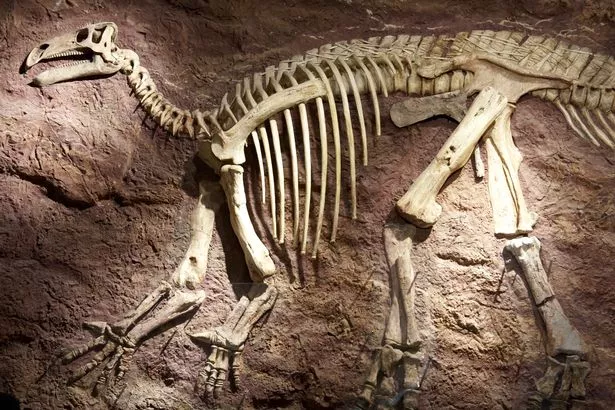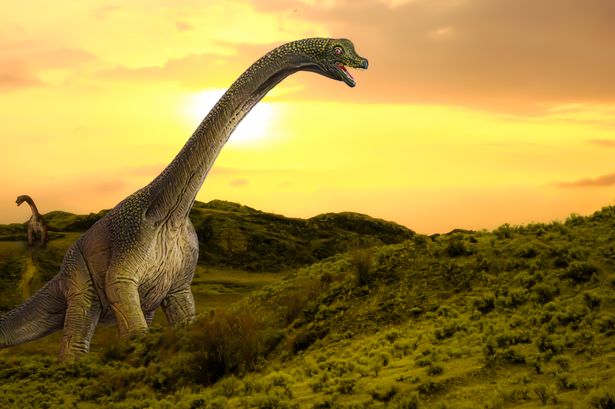Our Terms & Conditions | Our Privacy Policy
Dinosaurs may hold unlikely key to cancer breakthroughs say scientists
Researchers explored the fossil of a Telmatosaurus transsylvanicus, a ‘marsh lizard’ that existed between 66 and 70 million years ago
Scientists believe that dinosaurs may provide valuable insights regarding past diseases and illnesses(Image: Joe Regan/Getty Images)
Dinosaurs might not be the first thing that comes to mind when considering cancer treatment. Yet scientists now believe these prehistoric creatures could actually provide valuable insights on how to tackle the complex, cell-mutating disease.
New research from Anglia Ruskin University and Imperial College London explored this subject, using pioneering techniques to closely examine the fossil of an ancient species.
Now they theorise that soft tissue and cellular structures are perhaps preserved in ancient remains more frequently than previously understood, potentially offering crucial information for future illness prevention.
 Scientists hope that prehistoric insights may inform future illness prevention(Image: Halfpoint Images/Getty Images)
Scientists hope that prehistoric insights may inform future illness prevention(Image: Halfpoint Images/Getty Images)
Senior author Justin Stebbing, Professor of Biomedical Sciences at Anglia Ruskin University, said: “Dinosaurs, as long-lived, large-bodied organisms, present a compelling case for investigating how species managed cancer susceptibility and resistance over millions of years.
“Proteins, particularly those found in calcified tissues like bone, are more stable than DNA and are less susceptible to degradation and contamination. This makes them ideal candidates for studying ancient diseases, including cancer, in paleontological specimens.”
The researchers specifically highlighted the Telmatosaurus transsylvanicus, a duck-billed ‘marsh lizard’ that roamed what is now Romania between 66 and 70 million years ago. Using Scanning Electron Microscopy (SEM), researchers discovered ‘red blood cell-like structures’ within a fossil of this creature.
 Researchers stressed the importance of preserving dinosaur tissue rather than just bones(Image: Andrew Holt/Getty Images)
Researchers stressed the importance of preserving dinosaur tissue rather than just bones(Image: Andrew Holt/Getty Images)
Now, by examining preserved proteins and biomarkers, scientists hope to gain insights into diseases that impacted prehistoric animals, including cancer. This project builds on a previous study that found evidence of cancer in the same marsh lizard.
Professor Stebbing continued: “Unlike skeletal structures alone, soft tissues contain proteins that provide molecular information that can reveal the underlying biological mechanisms of disease.”
With this in mind, scientists also emphasised the importance of gathering and preserving dinosaur tissue, not just skeletons. They asserted that future analyses could enhance our understanding of disease evolution over time, potentially informing treatments for humans.
“Our research, using relatively underused methods, invites further exploration that could hold the key to future discoveries that could benefit humans,” Professor Stebbing added.
“However, it is crucial that long-term fossil conservation efforts are coordinated to ensure that future researchers have access to specimens suitable for cutting-edge molecular investigations.”
What do you think? Let us know in the comment section below
Images are for reference only.Images and contents gathered automatic from google or 3rd party sources.All rights on the images and contents are with their legal original owners.



Comments are closed.